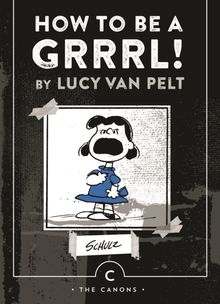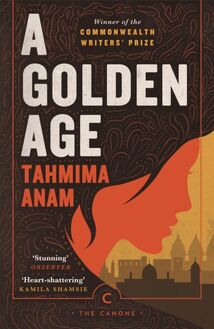Hollywood , livre ebook
159
pages
English
Ebooks
2009
Vous pourrez modifier la taille du texte de cet ouvrage
Obtenez un accès à la bibliothèque pour le consulter en ligne En savoir plus
Découvre YouScribe en t'inscrivant gratuitement
Découvre YouScribe en t'inscrivant gratuitement
159
pages
English
Ebooks
2009
Vous pourrez modifier la taille du texte de cet ouvrage
Obtenez un accès à la bibliothèque pour le consulter en ligne En savoir plus
Publié par
Date de parution
25 septembre 2009
Nombre de lectures
3
EAN13
9781847676283
Langue
English
Poids de l'ouvrage
1 Mo
Publié par
Date de parution
25 septembre 2009
Nombre de lectures
3
EAN13
9781847676283
Langue
English
Poids de l'ouvrage
1 Mo
Charles Bukowski was the legendary Californian writer who became famous for his semi-autobiographical books about low-life America. Novels such as Factotum and Post Office made this one-time bum, and lifelong alcoholic, rich and famous, and culminated in the making of Barfly , a major Hollywood movie based on his life starring Mickey Rourke and Faye Dunaway. He died in March 1994.
Selected works by Charles Bukowski PROSE Post Office Factotum Women Pulp Ham on Rye Bring Me Your Love There’s No Business Hot Water Music Septuagenarian Stew: Stories and Poems South of No North: Stories of the Buried Life Run with the Hunted The Mathematics of the Breath and the Way POETRY Come On In! The Pleasures of the Damned
This Canons edition published in Great Britain in 2019 by Canongate Books This digital edition published in Great Britain in 2019 by Canongate Books First published in Great Britain in 2007 by Canongate Books Ltd, 14 High Street, Edinburgh, EH1 1TE Published in the United States of America in 2002 by Ecco, an imprint of HarperCollins Publishers Inc., 10 East 53rd Street, New York, NY 10022 First published in the United States of America in 1989 by Black Sparrow Press, California, USA canongate.co.uk Copyright © Charles Bukowski, 1989 Introduction copyright © Howard Sounes, 2007 The right of Charles Bukowski to be identified as the Author of this Work has been asserted by them in accordance with the Copyright, Designs and Patent Act 1988 This is a work of fiction. Names, characters, businesses, places, events, localesand incidents are either the products of the author’s imagination or usedfictitiously. Any resemblance between the characters and actual persons, livingor dead, or actual events is purely coincidental. British Library Cataloguing-in-Publication Data A catalogue record for this book is available on request from the British Library ISBN 978 1 78689 167 9 eISBN 978 1 84767 628 3
Contents
Introduction Chapter One Chapter Two Chapter Three Chapter Four Chapter Five Chapter Six Chapter Seven Chapter Eight Chapter Nine Chapter Ten Chapter Eleven Chapter Twelve Chapter Thirteen Chapter Fourteen Chapter Fifteen Chapter Sixteen Chapter Seventeen Chapter Eighteen Chapter Nineteen Chapter Twenty Chapter Twenty-One Chapter Twenty-Two Chapter Twenty-Three Chapter Twenty-Four Chapter Twenty-Five Chapter Twenty-Six Chapter Twenty-Seven Chapter Twenty-Eight Chapter Twenty-Nine Chapter Thirty Chapter Thirty-One Chapter Thirty-Two Chapter Thirty-Three Chapter Thirty-Four Chapter Thirty-Five Chapter Thirty-Six Chapter Thirty-Seven Chapter Thirty-Eight Chapter Thirty-Nine Chapter Forty Chapter Forty-One Chapter Forty-Two Chapter Forty-Three Chapter Forty-Four Chapter Forty-Five Chapter Forty-Six
for Barbet Schroeder
Introduction
When Charles Bukowski writes about Hollywood he is not usually referring to the movie industry, but to the place where he lived for many years: a scruffy residential district, at the unfashionable end of Sunset Boulevard, known as East Hollywood. Here in rundown apartment buildings in the smoggy basin of Los Angeles, below the HOLLYWOOD sign, live the working poor of LA, newly arrived immigrants and those who have all but given up on life. Night sounds include sirens, arguments, bottles smashed into trash cans and gunshots. This is Bukowskiland – the setting of many of his poems, stories and novels, of which there are six. This book is his fifth novel, first published in 1989, when the writer was in his late sixties. In contrast to the rest of his work, when Bukowski writes here about ‘Hollywood’, he is concerned with the movie business.
Before the story gets underway we read a prominent disclaimer: ‘This is a work of fiction and any resemblance between the characters and persons living or dead is purely coincidental, etc.’ While it is usually a mistake to assume that people in novels are facsimiles of people in life, this disclaimer is disingenuous, as the sarcastic ‘etc.’ indicates. Bukowski’s working method had always been to create characters based closely on himself and those around him, and seldom was this more true than with Hollywood , which is best described, perhaps, as a fictionalised journal . The subject matter is the author’s recent experiences writing a screenplay, Barfly , about his early life, and the process of seeing Barfly made into a Hollywood movie. In working on the picture, the author met a parade of celebrities and Hollywood is also a roman à clef in that it is a book in which many of the characters are famous people in disguise, the point partly being to satirise their extravagant personalities and reveal their sometimes bizarre behaviour. The making of the film, and the story told in Hollywood , is studded with outrageous episodes, many of which are quite hilarious. At one point in the book Bukowski’s autobiographical hero, Henry Chinaski, compares his odyssey through low-life America to show-business and has to conclude that: ‘my past life hardly seemed as strange or wild or as mad as what was occurring now’.
Before delving deeper into the book let’s remind ourselves of that ‘past life’, recapping how Bukowski went from sleeping on park benches to having a movie made about himself: not the usual experience of the average bum, though he was never merely that.
Born in Andernach, Germany, to an American serviceman father and a German mother just after World War One, Henry Charles Bukowski Jnr. (Hank to friends) was taken to the United States as a child and grew up in Los Angeles, which became his home town. In material terms, the Bukowskis lived a comfortable, lower-middle-class life. Nevertheless, Hank’s childhood was miserable. He revisited his boyhood time and again for his books, never tiring of writing about Chinaski’s bullying father, his ineffectual mother and the acne that further blighted Chinaski’s youth, as it did the author’s. The saga is recounted most fully in Bukowski’s fourth novel, Ham on Rye , also published by Canongate.
As he grew older, Bukowski shunned society, turning his face against the conventional life his parents had prepared him for, having sent their only child to a good school followed by college (which he dropped out of). When he left home, he chose to work manual jobs in order to earn just enough to rent cheap rooms where he would spend his free time alone, drinking and listening to classical music on the radio, while typing stories and poems. For brief periods during his youth, mostly when he was travelling around the country, he sank lower than this and knew what it was to go hungry and sleep rough as a bum.
Whether he had a roof over his head or not, Bukowski lived a hermit-like existence and was always, to a large degree, shy of people. As a result he remained almost entirely inexperienced sexually until the age of twenty-seven, when he met Jane Cooney Baker in a Los Angeles drinking den. A thirty-eight-year-old woman with an unhappy past, Jane was a ‘barfly’, that is, she lived her life largely in bars, doing whatever she had to do in order to buy her next drink. She and Hank discovered they had much in common: they both believed alcohol could blot out their misery, and they felt most people weren’t worth a damn. The couple moved in together and, though they fought, Jane was the love of Bukowski’s life, as well as being the inspiration of some of his best work, not least the poems of love and grief in his wonderfully titled and highly recommended book The Days Run Away Like Wild Horses Over the Hills .
Poems of grief as well as love poems because Jane drank herself to death when she was fifty-one, while life for Bukowski went on. For years he worked unhappily for the US Postal Service, as a delivery man, then mail sorter, choosing to make his home in East Hollywood, in the shadow of the movie business, which he had nothing to do with at this time. He was still there – in a shabby apartment on De Longpre Avenue – when he started to become successful in the early 1970s, having been discovered by several admirers including a publisher named John Martin. With John’s encouragement and financial support, Hank left the US Postal Service when he was forty-nine, making the momentous decision to become a full-time writer. (He didn’t tell John he was about to be fired from the post office anyway.)
Gradually, Hank started to make a living from his pen, his books selling especially well in translation. By the late 1970s he had a large readership in France and Germany, his fan-base growing in Great Britain and the USA, and was earning enough money as a result to buy his first home, a detached property in San Pedro, south of LA. Soon he also acquired a BMW car. Hank shared this new, lucky life with a young woman named Linda Lee Beighle, whom he married in 1985, and who encouraged him to adopt a healthier lifestyle. Under Linda Lee’s influence, Hank cut down on his intake of beer and whisky, for example, drinking wine instead.
So we can picture our hero – that is to say, both the author Bukowski and his alter ego Chinaski – at the time of this novel: a man in his sixties who, though battered and buffeted by life, has reached a point in his career where his books are selling and his home situation is comfortable. Hank was probably as happy now as he had ever been.
Several filmmakers were interested in adapting Bukowski’s work for the screen. In 1981, director Marco Ferreri made Tales of Ordinary Madness , based on a Bukowski short story. The picture set the standard for most of the Bukowski movies that followed in that it focused on the shock value of his stories while failing to convey the subtlety, wisdom and wit of the writing. Around the same time Taylor Hackford attempted to make a film of Bukowski’s novel, Post Office , but couldn’t get the project off the ground. Shor














